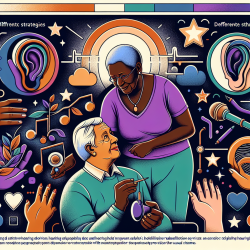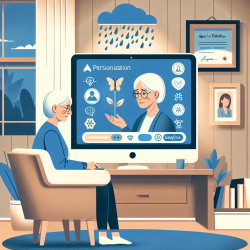Introduction
The realm of affective science, which explores the experience, expression, and regulation of emotions, has profound implications for health and well-being. The recent research article, "Affective Science Research: Perspectives and Priorities from the National Institutes of Health," provides a comprehensive overview of the current priorities and perspectives in this field. This blog aims to translate these insights into practical strategies for practitioners, particularly those involved in online therapy services for children, such as those offered by TinyEYE.
Key Insights from NIH's Affective Science Research
The National Institutes of Health (NIH) emphasizes the importance of affective science across various health domains, including cancer control, mental health, aging, substance use disorders, and minority health disparities. The research highlights several cross-cutting themes that are particularly relevant for practitioners:
- Stress and Emotion Regulation: Understanding how stress impacts physiological and psychological systems is crucial. Practitioners can implement strategies to help children manage stress and regulate emotions effectively.
- Resilience and Positive Emotions: Encouraging resilience and fostering positive emotions can significantly impact health outcomes. Online therapy can incorporate activities that build resilience and promote emotional well-being.
- Social and Interpersonal Factors: The COVID-19 pandemic has underscored the importance of social connections. Online therapy platforms can facilitate social interactions and support systems for children, reducing feelings of isolation.
Practical Applications for Online Therapy
Practitioners can leverage these insights to enhance their online therapy services:
- Incorporate Emotion Regulation Techniques: Use evidence-based interventions to teach children how to identify and manage their emotions. Techniques such as mindfulness and cognitive-behavioral strategies can be integrated into therapy sessions.
- Promote Resilience Building Activities: Design activities that challenge children to overcome obstacles and build resilience. This can include problem-solving tasks and goal-setting exercises.
- Facilitate Social Interaction: Create opportunities for children to engage with peers through group therapy sessions or interactive online activities. This can help mitigate the effects of social isolation.
Encouraging Further Research
While the NIH research provides a robust foundation, there is a need for continued exploration in affective science. Practitioners are encouraged to engage in ongoing research to refine their approaches and contribute to the evolving understanding of emotional health. Collaboration with academic institutions and participation in professional development opportunities can enhance practitioners' skills and knowledge.
Conclusion
Integrating affective science insights into online therapy can lead to improved outcomes for children. By focusing on emotion regulation, resilience, and social interaction, practitioners can create supportive environments that foster emotional well-being. To delve deeper into the research, practitioners are encouraged to read the original paper: Affective Science Research: Perspectives and Priorities from the National Institutes of Health.










